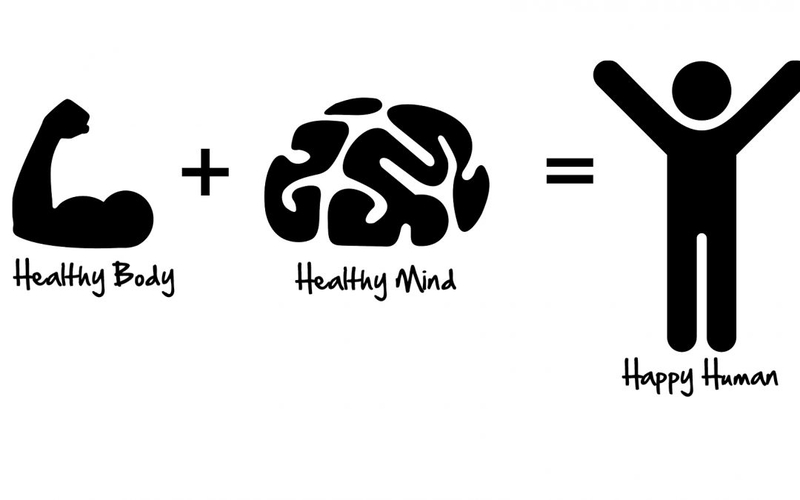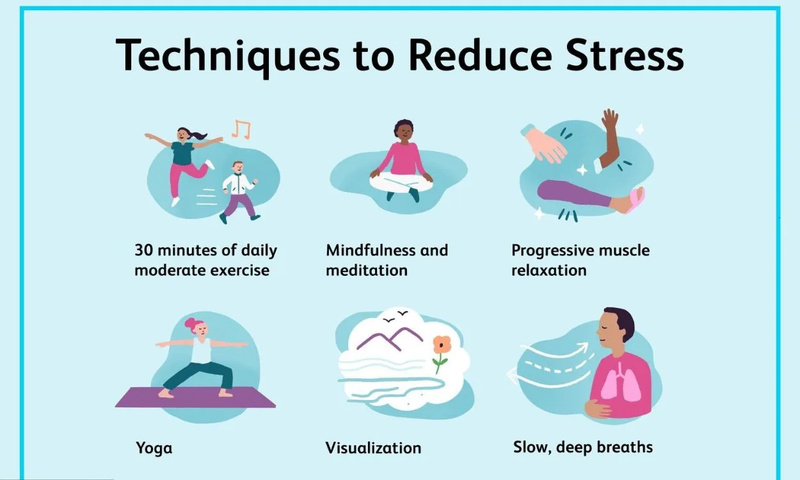The Link Between Physical and Mental Health
Jun 14, 2024 By Madison Evans
The body and mind are deeply connected, forming the core of overall health. Not taking care of one can hurt the other, starting a chain reaction that results in various health problems. This article looks into how important it is to link physical and mental well-being together, highlighting why they should be taken care of at the same time for the best possible health.
Physical Activity and Mental Health
Doing exercise is not just good for keeping your body fit, but it also helps a lot with mental health. When you do physical activity, it triggers the release of endorphins. These are neurotransmitters that make you feel happy and good overall.

Additionally, participating in physical activities like walking, jogging, or doing yoga can reduce signs of anxiety and depression. It is very important to include exercise in regular routines for better health of both body and mind. Physical activity does not need to be intense to have positive effects. Simple tasks such as gardening or dancing can also help enhance mood and decrease stress.
- Variety in Exercise: Incorporating different types of physical activity into your routine, such as strength training, flexibility exercises, and cardiovascular workouts, ensures comprehensive fitness benefits.
- Outdoor Exercise: Exercising outdoors exposes you to natural light and fresh air, which can enhance mood and overall well-being.
Nutrition and Mental Well-Being
Food is very important for keeping your body and mind healthy. Some nutrients, like omega-3 fatty acids in fish or vitamins B12 and folate, are especially needed for good brain function and controlling moods.
On the other hand, a bad diet that contains lots of processed food and sugar may cause inflammation in your body. This can affect mental health. Giving importance to healthy foods helps maintain good overall health and supports positive thinking. Apart from macronutrients and micronutrients, hydration is also important for mental wellness. Dehydration can impair cognitive function and mood regulation.
- Mindful Eating: Practicing mindful eating, which involves paying attention to the sensory experience of eating and being aware of hunger and fullness cues, can promote healthier eating habits and improve overall well-being.
- Limiting Caffeine and Alcohol: Excessive consumption of caffeine and alcohol can disrupt sleep patterns and exacerbate symptoms of anxiety and depression.
Sleep Quality and Mental Wellness
Sleep is very important for sharp thinking, controlling emotions, and good mental health. Not getting enough sleep over time can affect decision-making ability, make stress worse, and make symptoms of mental disorders worse.
Arranging a steady sleep timetable, making a calm routine before bed, and improving the sleeping setting are crucial actions to improve the quality of sleep. Giving enough time for rest is very important in taking care of physical and mental health. Along with how long you sleep, the quality of your rest can be affected by things like where you sleep, how noisy it is around there, and what activities happen before going to bed.
- Limiting Screen Time: Exposure to blue light from electronic devices before bedtime can disrupt sleep patterns. Creating a tech-free zone in the bedroom and avoiding screens at least an hour before bed can promote better sleep quality.
- Mind-Body Practices: Relaxation techniques such as progressive muscle relaxation or guided imagery can help reduce stress and promote deeper, more restful sleep.
Social Connections and Physical Health
Humans are naturally social, and significant social ties are important for good health. Doing activities with others, being around family and friends, or creating supportive relationships are connected with many benefits to physical health. On the other hand, being socially isolated or feeling lonely can have a big effect on mental health by making people more likely to experience feelings of depression and anxiety.
So, to summarize, having strong social connections is very important for overall well-being. It's not always necessary to meet in person to keep social relationships strong. Using online tools can help people stay connected and supportive, especially when physical distance is needed.
- Volunteering: Engaging in volunteer work not only benefits the community but also provides opportunities for social interaction and a sense of purpose.
- Pet Ownership: Pets can provide companionship and emotional support, contributing to improved mood and overall well-being.
Stress Management and Physical Well-Being
Stress that continues for a long time is not only bad for mental health but also has deep impacts on physical well-being. If a person experiences high levels of stress hormones such as cortisol over an extended period, it can make the immune system weak, and raise inflammation and blood pressure. This puts them in danger of different health issues.

To reduce stress, it is important to use stress management techniques. These include things like paying attention on purpose (also known as mindfulness meditation), breathing deeply exercises, and managing time well strategies. Combining formal stress management with relaxation in everyday life can help lower stress levels and improve the health of both body and mind.
- Leisure Activities: Engaging in hobbies and leisure activities that bring joy and relaxation, such as reading, gardening, or listening to music, can counteract the negative effects of stress.
- Setting Boundaries: Establishing boundaries and learning to say no to excessive demands can help reduce stress and prevent burnout.
Professional Support for Holistic Health
Getting a serious expert's assistance is very crucial for dealing with all kinds of health problems, including those related to your body and mind. People who do integrative healthcare like natural doctors or functional medicine physicians completely look at wellness by taking into account how everything is connected - your thoughts, body, and spirit. Also, therapists and counselors who are experts in mental health offer important help for dealing with psychological pain as well as making life better overall.
Working together with a team of healthcare professionals from various fields makes sure that the care given is thorough and supports total well-being. Along with therapy for one person, group therapy can offer social help a and feeling of community to those who are dealing with similar difficulties.
- Self-Care Practices: Integrating self-care practices into daily routines, such as mindfulness exercises, journaling, or creative expression, can enhance overall well-being and complement professional treatment.
- Holistic Modalities: Exploring holistic modalities such as acupuncture, massage therapy, or aromatherapy can offer additional avenues for promoting relaxation and healing.
Conclusion
To sum up, it is very important to give equal importance to mental health and physical well-being. This will help in achieving overall wellness by understanding that these two are closely related and need a comprehensive approach to maintaining good health. When people focus on their mental state along with staying fit, they can maximize their well-being and find more satisfaction in life. Regular exercise paired with healthy eating habits, beneficial social interactions, techniques for stress management as well as professional assistance all contribute towards promoting both aspects of wellness: physical fitness alongside mental stability.







